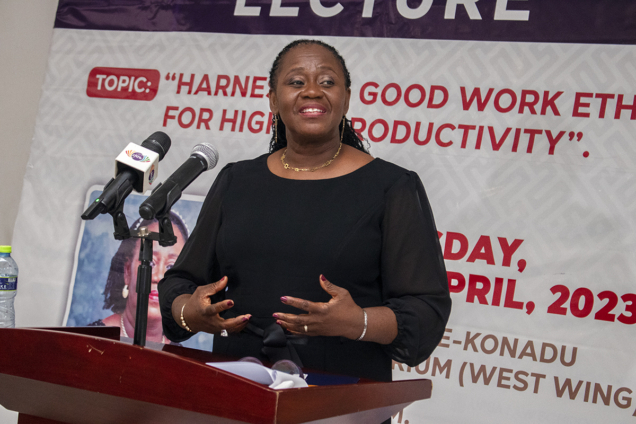Chief Justice Gertrude Sackey Torkornoo has stated that the digitization agenda for the courts will proceed without interruption.
“Under the Leadership Innovation and Technology (LIT) pillars, the Judicial Service of Ghana (JSG) will work earnestly towards improving the culture of leadership and innovation in the way the JSG has traditionally worked.
“It will also build on the established structures of the virtual courts and other electronic processes which give meaning to the e-justice system,” Chief Justice Torkornoo said in a message to usher in the 67th Legal year.
The Chief Justice also urged all stakeholders in the justice delivery sector to remain dedicated to ensuring democracy functions effectively in the country by demonstrating discipline, competence, and effectiveness in their work within and around the courts.
“With God ‘s help and your support, I am confident that together, we can achieve every expectation of the 1992 Constitution,” she said.
The 67th Legal Year is on the theme “Building the Pillars of Justice Delivery through Leadership, Innovation and Technology.”
Regarding the Court Shift System, Chief Justice Torkornoo noted that feedback from various regions had indicated that the initiative was effectively reducing the backlog of cases in specific courts.
She said the initiative had improved access to justice by providing flexible court hours that accommodate different schedules, thus enhancing the overall efficiency of the judicial system.
Chief Justice Torkornoo also mentioned another innovation introduced this year-the Small Claims Debt Recovery Courts- which operate in the afternoon and on Saturdays and are designed to address the caseloads related to small debts in the district courts.
She said the digitization of court records made it easier to electronically store and retrieve them.
“These interventions will continue as we build on them in the year 2024-25 legal year,” stated.
In the 2023-24 legal year, the Judiciary operated under the theme “Building the Pillars of Justice,” emphasizing Law, Ethics, Assets, and Due Process (LEAD).
As part of the LEAD project, the Judiciary focused on developing a curriculum for paralegal training for all categories of staff within the Judicial Service.
The goal was to enhance the capacity of staff and external service providers to better understand the law in general and the legal frameworks relevant to their daily work.
Latest Stories
-
I want to focus more on my education – Chidimma Adetshina quits pageantry
2 hours -
Priest replaced after Sabrina Carpenter shoots music video in his church
2 hours -
Duct-taped banana artwork sells for $6.2m in NYC
2 hours -
Arrest warrants issued for Netanyahu, Gallant and Hamas commander over alleged war crimes
2 hours -
Actors Jonathan Majors and Meagan Good are engaged
2 hours -
Expired rice saga: A ‘best before date’ can be extended – Food and Agriculture Engineer
2 hours -
Why I rejected Range Rover gift from a man – Tiwa Savage
2 hours -
KNUST Engineering College honours Telecel Ghana CEO at Alumni Excellence Awards
3 hours -
Postecoglou backs Bentancur appeal after ‘mistake’
3 hours -
#Manifesto debate: NDC to enact and pass National Climate Law – Prof Klutse
3 hours -
‘Everything a manager could wish for’ – Guardiola signs new deal
3 hours -
TEWU suspends strike after NLC directive, urges swift resolution of grievances
3 hours -
Netflix debuts Grain Media’s explosive film
4 hours -
‘Expired’ rice scandal: FDA is complicit; top officials must be fired – Ablakwa
4 hours -
#TheManifestoDebate: We’ll provide potable water, expand water distribution network – NDC
5 hours

